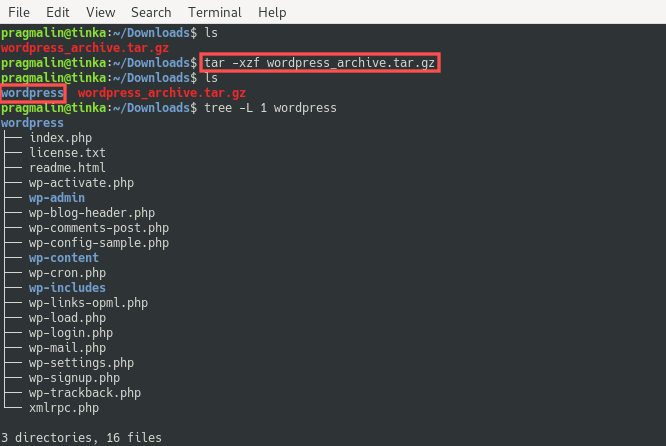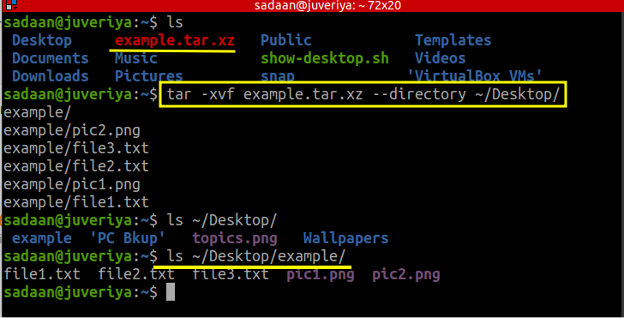
#Unpack tar xz archive#
I changed the compression rate of the tar.gz archive to -9, so the crisis averted for now, but I’d still love to know if this is a bug or if I’m doing something wrong. On my pc, with windows 10, I get the following error: 'xz' is not recognized as an internal or external command, operable program or batch file.
#Unpack tar xz mac#
The file I’m trying to extract is indeed the tar.xz archive, not only by the extension, but by the magic bytes as well. My colleagues using mac or linux open xz files with this line: xz -decompress -stdout ''.

Like it should be working for the tar.xz. The contents of the source tree, with conflicts resolved in favor of “2.” on a file-by-file basis. This option tells tar to display the names of the files being extracted on the. For more verbose output, use the -v option. \whatever.xz tar auto-detects the compression type and extracts the archive. Run 'tar -czvf (archive name).tar. To extract a tar.xz file, invoke the tar command with the -extract (-x) option and specify the archive file name after the -f option: tar -xf. To see progress messages, also use the v. Whatever existed at the destination path and The tar command on Linux is used to create and extract TAR archive files. Uncompress a tar archive In the Terminal app on your Mac, enter the tar command with the x flag, then press Return. When a directory is copied or unpacked, it has the same behavior as tar -x, the result is the union of: Resources from remote URLs are not decompressed. If is a local tar archive in a recognized compression format (identity, gzip, bzip2 or xz) then it is unpacked as a directory. I’ve read about the ADD command on and I understand If there’s another way to achieve the same by manually extracting, I’d love to hear about it!

I have tested it with tar.gz, but it’d be much better if I was able to use the tar.xz, as the image is about 350MB in size( tar.gz's image is about 500MB). Into the Docker file I’ve put ADD /opt/appīut after the docker image is built, /opt/app isn’t a directory containing the files, but it’s a xz compressed file. Type one of the following commands and press Enter. Alternatively, you can also specify a source and destination file path when using the tar utility.
#Unpack tar xz install#
Another option is to install 7-Zip, which has a nice graphical user interface.
Hello, this is my first post on this forum, so be gentle With the command prompt open, use the appropriate commands to change the current working directory ( cd) to the location of the. If you have MinGW/MSYS or Cygwin installed, you can use the tar command to unpack such files: tar xvf <.tar file> tar xzvf <.tar.gz file> tar xjvf <.tar.bz2 file> Try tar -help or see the tar man page for more information.

 0 kommentar(er)
0 kommentar(er)
